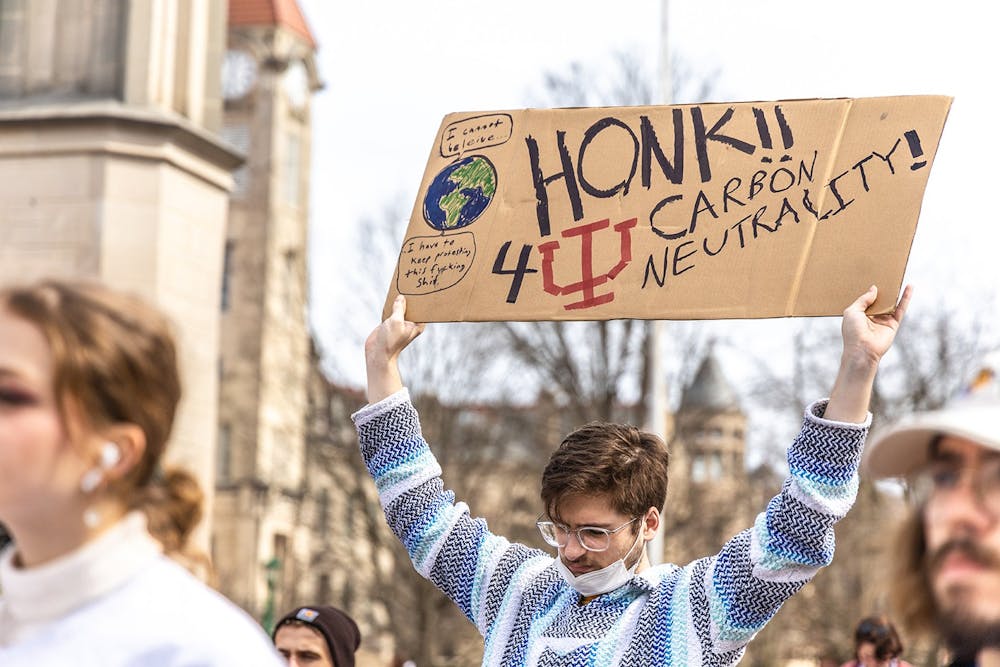After years of protests and pressure from student groups, IU has begun working on creating a climate action plan.
The IU Climate Action Planning Committee hopes to finalize a plan to curb greenhouse gas emissions and adapt to rising global temperatures by the end of the spring 2023 semester.
James Farmer, committee member and director of the IU Food Institute, said IU President Pamela Whitten has asked the committee to have a climate action plan by next April or May.
Last spring, President Whitten tasked Vice President of capital planning and facilities Tom Morrison to lead the committee. The committee is made up of faculty, staff and students from across IU’s campuses.
“We all agree that we need to become carbon neutral,” Morrison said, “The question is how and what’s the impact on the people of the institution.”
One of the main obstacles in developing the plan is funding. IU has an endowment of $3.3 billion. However, those funds largely come from donors who want them used for specific purposes, according to the IU Foundation.
The funding for the plan may come from money saved with energy efficient technology, there is also an interest in encouraging philanthropy to fund the project, Morrison said.
The Inflation Reduction Act, passed by U.S. Congress earlier this year, will also provide opportunities for IU to reduce greenhouse gas emissions. Morrison and the committee are currently looking into how the new legislation can benefit IU.
Related: [IU Student Government optimistic about IU’s plans to address climate change concerns]
While developing a plan that best fits IU, Morrison said the committee has been analyzing the climate action plans of other Big Ten Conference universities that are of similar size.
Another challenge is creating a plan that works for every IU campus. Campuses other than Bloomington use different utility companies and have different infrastructure.
The committee will look for feedback from students at a series of public forums later this fall. No date has been set for the forums though, Morrison said.
In recent years, there has also been a call from student groups for the IU Foundation to divest from fossil fuels. Students for a New Green World and Sunrise Bloomington have held multiple protests to put pressure on the IU Foundation.
Related: ['We’re demanding IU follows through on their promises': Demonstrators gather at joint rally]
Siân Mooney, dean of the O’Neil School of Public and Environmental Affairs, said divesting from fossil fuels will most likely not be part of the plan. She said the focus of the plan will be on the physical infrastructure at IU and how to make each campus more sustainable.
“We respect the work student groups do to advance causes and concerns important to them,” Matt Kavgian, IU Foundation director of strategic communications and projects, said. “The IU Foundation works through established channels at IU to address matters of interest to students.”
According to a February Sunrise Bloomington press release, the IU Foundation has not engaged them in discussions on divestment.
Last month, Kavgian said IU Foundation President J T. Forbes, provided a report to the climate action planning committee that explained the Foundation’s investment practices as well as how philanthropy can further environmental sustainability.
CORRECTION: This story and headline has been updated to show IU’s Climate Action Planning Committee is currently researching ways to make IU carbon neutral and curb greenhouse gas emissions.
CORRECTION: A previous version of this story misspelled J T. Forbes's name.






